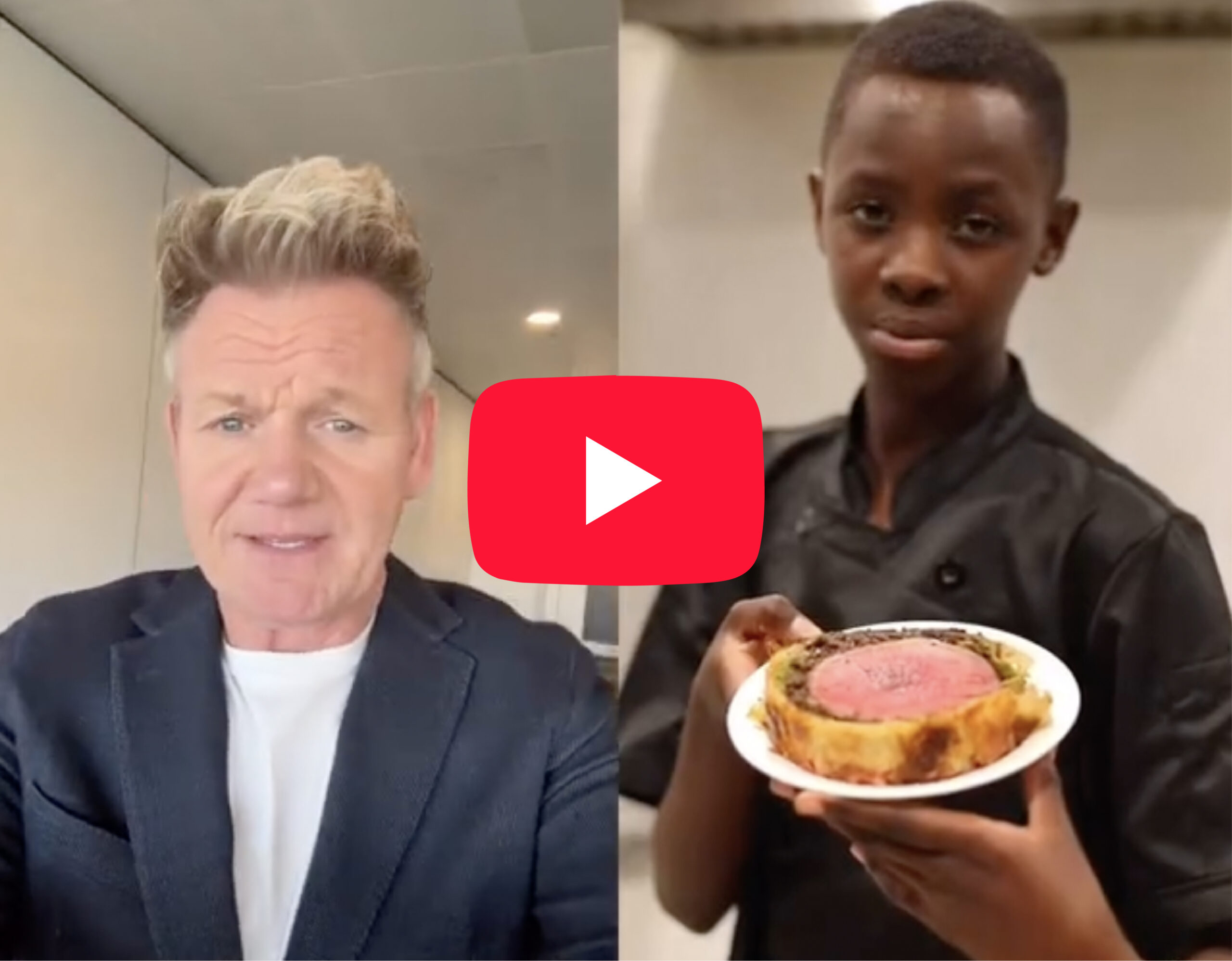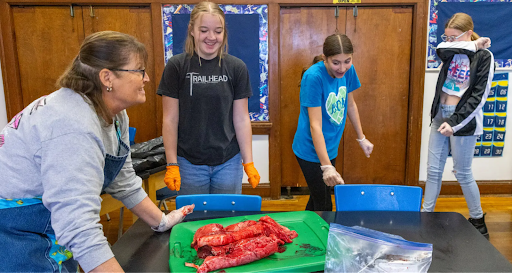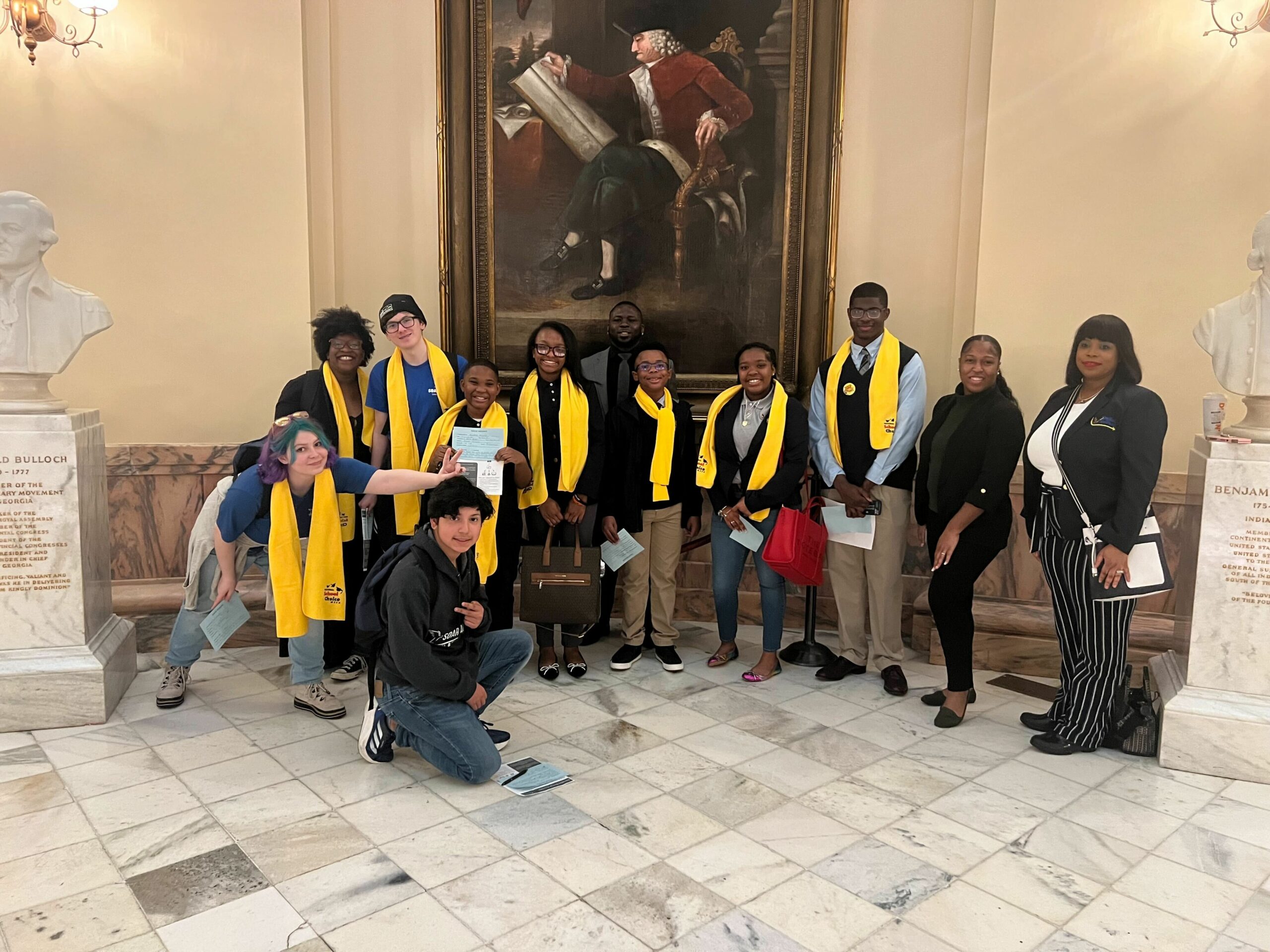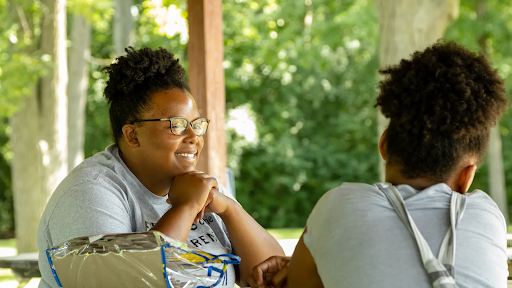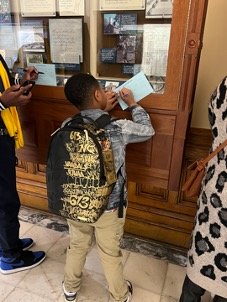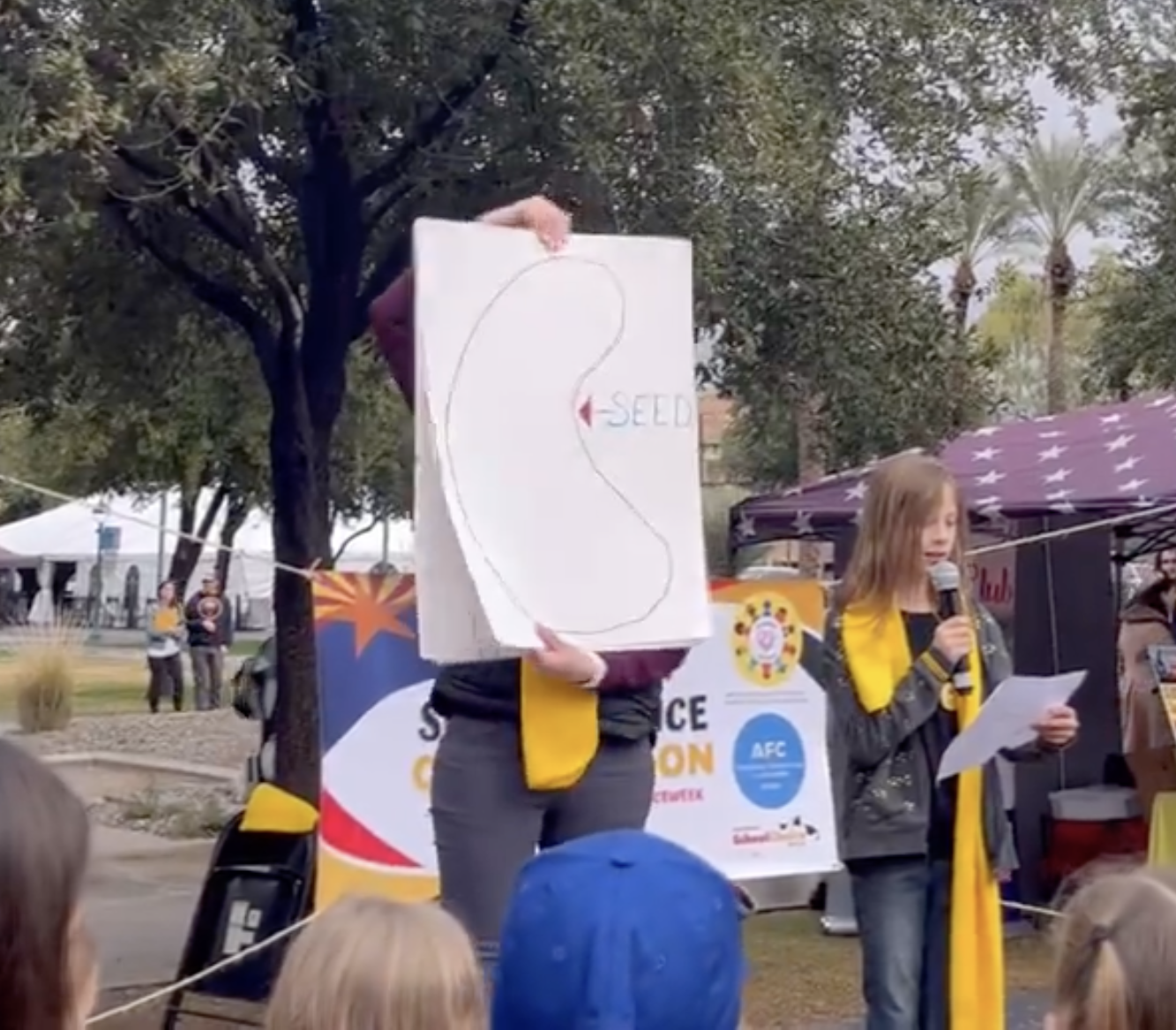Jump to: Top Tasks | From the Field | Key Resources | Moments of Resilience
This month will mark the end of 50CAN’s 10th year.
Two of the core values we established in those early days in 2011 to help guide our work were optimism and candor, knowing that holding true to both of them at once wouldn’t always be easy. That’s never been more true than in 2021.
We strived to lead the way forward this year with candor about the ways our country’s response to the pandemic has failed to put the needs of kids first. We put a spotlight on the learning losses that school shutdowns have produced, the lack of transparency in the way billions of federal funds are being spent and the slow pace of progress in adapting our educational systems to this new reality.
At the same time, our optimism in what can emerge from this crisis led us to aim higher than just a return to normal. As we wrote back in September when we rolled out an ambitious new policy agenda: “As we seek to recover, rebuild and renew our commitment to education, our students deserve MORE than a return to normal, they deserve to Believe in Better.” Despite the challenges, we draw strength and hope from the work of local advocates across the country who are bringing this vision into reality.
SUBSCRIBE
Last time in the New Reality Roundup, we put the spotlight on the work of David Miyashiro and HawaiiKidsCAN, including this video which America Succeeds’ Eric Lerum described as, “Why we do this work. The kids and families. The community. The impact.”
This week, we take a clear-eyed look at the emerging Omicron variant and the potential impact that it will have on schools while also highlighting what continues to feed our optimism: the massive progress our advocates have made across the country in 2021.
TOP TASKS
Candor: Be clear-eyed about Omicron and what comes next
The slow and uncertain progress of providing all students with a reliable in-person schooling option is now at risk because of the Omicron variant of Covid-19.
While early reports from South Africa, Denmark and an early study indicate that Omicron is a milder disease, scientists are still urging caution. The Atlantic’s Ed Yong expands on the reason: “Even if Omicron is milder, greater transmissibility will likely trump that reduced virulence. Omicron is spreading so quickly that a small proportion of severe cases could still flood hospitals. To avert that scenario, the variant would need to be substantially milder than Delta—especially because hospitals are already at a breaking point.”
Once again, American parents will be faced with tough decisions about how to balance the risks to their children with uncertain information. What is clear is that fights over whether schools should remain open or closed are set to begin all over again.
Writing in the Washington Examiner, Tim Carney argues, “If your school says it will reopen ‘remotely’ for a week or two after the New Year, do not be surprised if those 14 days to ‘slow the spread’ turn into 14 weeks. Maybe your children will be back in the classroom after spring break.”
At the same time, promises that schooling will continue even when schools are closed seem in doubt. In Detroit, after the district moved to remote instruction on Fridays in December, Chalkbeat’s Matt Barnum reported last week that no remote instruction would be offered on the final Friday due to low attendance. In New York City, 877 classrooms have closed due to confirmed Covid-19 cases and in Chicago, the local union appears to be setting the stage for a return to remote learning. In Prince George’s County, where 95% of learners are students of color, the district has gone fully virtual until at least the middle of January.
That sentiment clearly concerns both the Biden administration and the CDC, who spoke with journalists at NBC News and the Washington Post to indicate a reposturing toward test-to-stay policies, where mandatory quarantines for students who were in close contact with a Covid-positive peer are not necessary if a student tests negative twice during the week after potentially being exposed. It remains to be seen whether districts and schools will follow this new policy guidance or whether it survives at all should Omicron continue to spread rapidly.
THE TASK OF THE WEEK IS
Optimism: Celebrate the progress of local advocacy
“School choice is in, as states across the nation have moved to expand education opportunities for disadvantaged kids,” the Wall Street Journal editorialized this past summer. “This year is shaping up as the best for reformers in a very long time.” Each of these policy wins helps move us closer to the day when every family is able to select the education that’s right for their children, a key pillar in our Believe in Better policy framework.
2021 was a year of record policy victories across 50CAN, with 30 wins throughout the network. We believe the relentless efforts of our local advocates will form the foundation of a new approach to public education that stands long after this virus is gone:
-
- ConnCAN passed historic charter school funding increases and brought equity to the state’s school funding formula, in a win that was 20-years in the making.
- JerseyCAN secured charter school facilities funds from the state for the first time.
- GeorgiaCAN expanded the state’s special needs scholarship program.
- TennesseeCAN grew its charter school facilities funding to $24 million.
- DelawareCAN removed barriers, allowing parents to more easily choose charter and public schools outside their attendance zones.
- NewMexicoKidsCAN stopped the passage of a charter school moratorium and secured the approval of two new charter schools by the state board.
- CarolinaCAN removed the financial cap on Opportunity Scholarships, linking future scholarships to per-pupil funding.
While expanding the options available to students and families is one important component of this school system of the future, there is much more that needs to be done. That’s why our advocates also worked diligently across the four other pillars of the Believe in Better policy framework with information for parents on how their children are doing and how federal money is being spent, new innovations like learning pods and a broad range of academic, social and mental health programs beyond school walls:
-
- TennesseeCAN worked to give free summer camp for 200,000 students, stopped the rollback of state assessments that would have hidden the failures of districts to educate children in the pandemic and ensured learning loss interventions would be evaluated.
- ConnCAN stopped the attempt to roll back assessments.
- GeorgiaCAN secured free summer camp for students in Atlanta.
- HawaiiKidsCAN ensured all students would have both in-person and virtual learning options, secured funding to ensure all students have access to high-speed internet and stopped a plan to reduce the length of the school year.
- JerseyCAN ensured that families would receive free tutoring.
- DelawareCAN removed the red tape for nonprofits creating and funding pods.
- Transform Education Now secured funding for free tutoring, direct educational aid to families and pod learning environments.
- JerseyCAN and Transform Education Now put language into law that ensures local transparency for the influx of Covid-related federal spending.
- HawaiiKidsCAN passed legislation that requires all K-12 students to receive education in computer science.
Key Resources
- ReimaginED is out with a new report on school choice in the Black community, looking primarily at Florida where the number of Black students enrolled in private choice programs has doubled since 2010.
- Writing for the Manhattan Institute, Mike McShane explores the growth of microschools in Arizona.
- In a new paper for the Urban Institute, Northwestern Professor David Figlio finds that low-income students in Catholic schools outperform their peers in other private schools.
- Applications for the American Federation for Children’s Education Policy Fellowship are open for interested graduate students.
- Andy Rotherham released his annual “In and Out List” on Eduwonk – a must read for education insiders.
- The 74 Million’s Beth Hawkins gathered the research, finding that the achievement gap has widened for students in majority-Black schools, falling to 12-months behind their white peers during the pandemic.
- Kevin Mahnken, also writing for The 74 Million, offers 16 charts that changed the way we looked at American Education in 2021.
- The Progressive Policy Institute hosted a webinar, “Voting with Their Feet: Responding to Increased Demand for Innovative Schools.”
- Teach For America announced a new partnership with Oprah on social-emotional learning.
Moment of Resilience
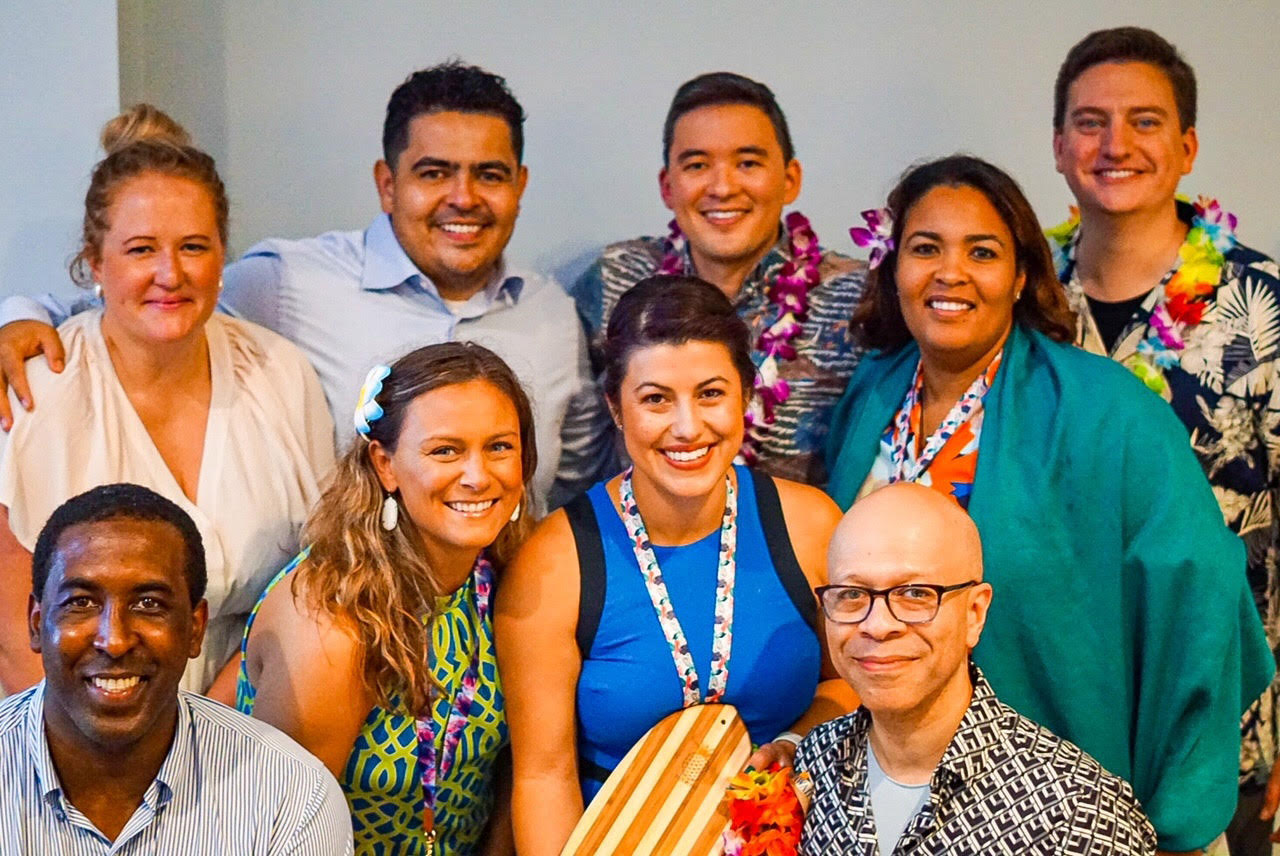
It took two years, but last week we brought our whole network together to take stock of what we have learned during the pandemic and where we should go in the new year. 50CAN President Derrell Bradford and our Executive Directors paused during our 10th Anniversary Summit to commemorate the moment.


